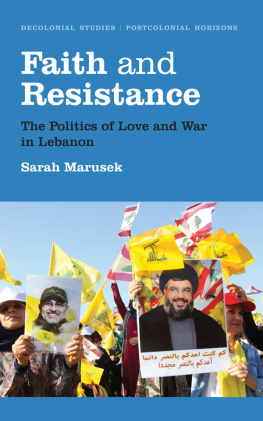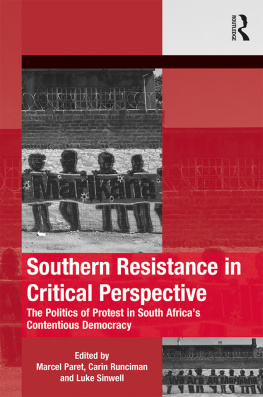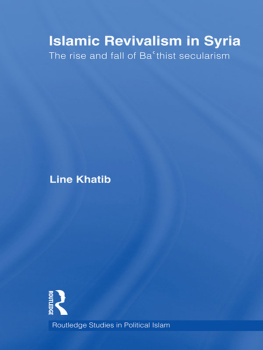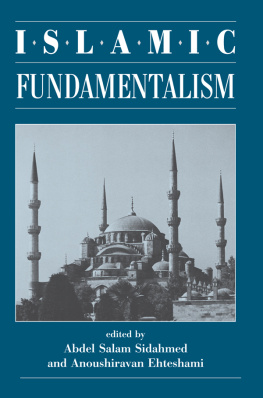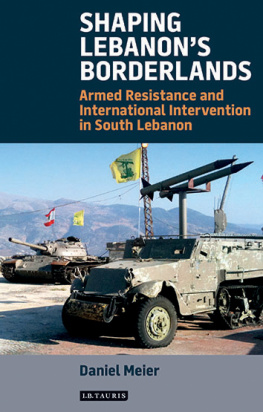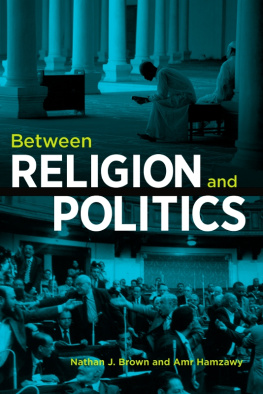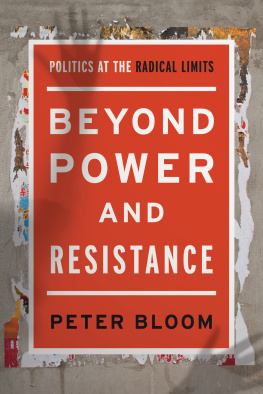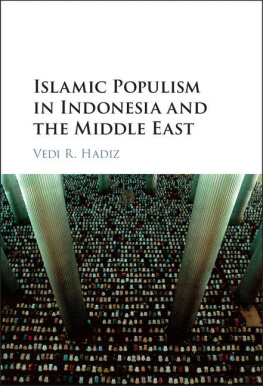Contents
Guide
Faith and Resistance
Decolonial Studies, Postcolonial Horizons
Series editors:
Ramn Grosfoguel (University of California at Berkeley)
Barnor Hesse (Northwestern University)
S. Sayyid (University of Leeds)
Since the end of the Cold War, unresolved conjunctures and crises of race, ethnicity, religion, diversity, diaspora, globalization, the West and the non-West have radically projected the meaning of the political and the cultural beyond the traditional verities of Left and Right. Throughout this period, Western developments in international relations have become increasingly defined as corollaries to national race-relations across both the European Union and the United States, where the reformation of Western imperial discourses and practices have been given particular impetus by the war against terror. At the same time, hegemonic Western continuities of racial profiling and colonial innovations have attested to the incomplete and interrupted institutions of the postcolonial era. Today we are witnessing renewed critiques of these postcolonial horizons at the threshold of attempts to inaugurate the political and cultural forms that decolonization now needs to take within and between the West and the non-West. This series explores and discusses radical ideas that open up and advance understandings of these politically multicultural issues and theoretically interdisciplinary questions.
Also available
Religion Without Redemption:
Social Contradictions and Awakened Dreams in Latin America
Luis Martnez Andrade
Queer Lovers and Hateful Others:
Regenerating Violent Times and Places
Jin Haritaworn
Rewriting Exodus
American Futures from Du Bois to Obama
Anna Hartnell
The Dutch Atlantic
Slavery, Abolition and Emancipation
Kwame Nimako and Glenn Willemsen
Islam and the Political
Theory, Governance and International Relations
Amr G.E. Sabet
The Politics of Islamophobia
Race, Power and Fantasy
David Tyrer
Faith and Resistance
The Politics of Love and War in Lebanon
Sarah Marusek

First published 2018 by Pluto Press
345 Archway Road, London N6 5AA
www.plutobooks.com
Copyright Sarah Marusek 2018
The right of Sarah Marusek to be identified as the author of this work has been asserted by her in accordance with the Copyright, Designs and Patents Act 1988.
British Library Cataloguing in Publication Data
A catalogue record for this book is available from the British Library
ISBN 978 0 7453 9993 5 Hardback
ISBN 978 0 7453 9992 8 Paperback
ISBN 978 1 7868 0193 7 PDF eBook
ISBN 978 1 7868 0233 0 Kindle eBook
ISBN 978 1 7868 0232 3 EPUB eBook
Sarah Marusek is a Research Fellow at the University of Leeds and a Research Associate Fellow at the University of Johannesburg. She is the co-author of a series of Spinwatch reports on the overlapping funders of the transatlantic Islamophobia network, neoconservative movement and Israeli settlements.
This book is printed on paper suitable for recycling and made from fully managed and sustained forest sources. Logging, pulping and manufacturing processes are expected to conform to the environmental standards of the country of origin.
Typeset by Stanford DTP Services, Northampton, England
Simultaneously printed in the United Kingdom and United States of America
Contents
List of Illustrations
These picture souvenirs illustrate how sectarian elites are idolised in Lebanon alongside religious saints
A bombed out building in the Shii neighbourhood known as Bosta near downtown Beirut
The owner of the Hotel Saint Georges argues that Solidere had no right to sell the beachfront land by his hotel to a private company and protests by draping signs against the company on the bombed-out frame of his hotel
The Islamic resistance movement established this memorial to honour those killed by Israeli forces in the 1994 and 2006 massacres in Qana
Sayyid Hassan Nasrallah personally addresses the Ashura commemorations in southern Beirut on 6 December 2011
Young children celebrate the Ashura commemorations in southern Beirut on 6 December 2011
A collection box for Islamic Emdad Charitable Committee
Hizbullah supporters wave flags during a rally in southern Beirut to commemorate Martyrs Day on 11 November 2010
The mosque aside the Imam al-Sadr Foundation compound in Sur
Uncoloured copy of the Imam al-Sadr Foundations religiously inspired student motivation chart
This is a sample letter that a student wrote to her plant expressing her love and commitment to watering it
Another sample letter that a student wrote to her plant expressing her love and commitment to watering it
The temporary memorial for assassinated Prime Minister Rafik Hariri in Martyrs Square in downtown Beirut
An election banner for Hizbullah in Baalbek, in the Bekaa Valley, which features the following three phrases, each one crossed out: Your Lebanon, Our Lebanon, and Their Lebanon163
A musical performance to commemorate the Syrian Socialist Nationalist Partys martyrs in the civilinternational war in Syria
Preface
In the novel Invisible Cities by the Italian writer Italo Calvino, a fictional explorer named Marco Polo describes 55 cities to an ageing emperor, Kublai Khan, to convince the latter of his dying empires vastness. I speak and speak, Marco says, but the listener retains only the words he is expecting It is not the voice that commands the story: it is the ear (Calvino 2010: 123). This quotation beautifully captures the predicament of Western scholarship when it comes to understanding Islam and the Middle East: ever since the Age of Enlightenment, what has been accepted as knowledge is deeply biased because the ear commanding the story has been a white, bourgeois, Western Christian male. In the contemporary era, this ear wants to hear that the Islamic resistance movement in Lebanon represents hatred and terrorism, not a legitimate challenge to the dominant coloniser/colonised relation that is foundational to Western secular modernity. As somebody who sees too much violence and oppression in todays status quo, I aim to present an alternative view that the Islamic resistance movement has comparable goals to other post-colonial movements inspired by theologies of liberation. Furthermore, it is articulating its own way forward on its own terms.
By openly embracing the enchanted aspects of modernity and challenging the hegemony of Western secular liberalism, I argue that the Islamic resistance movement is resisting the continued hierarchy of European above non-European, what Quijano (2000) calls the coloniality of power. This is because Western colonialism was not only a political and economic system to extract wealth from the Global South, but also a wider cultural and intellectual project based on the idea that Europeans have the right to colonise non-Europeans. The Western colonial mission thus required two distinct phases of colonisation: the first physical, where Europeans occupied the Global South, subjugated non-European populations and built infrastructure; and the second structural, where the ideas and practices undergirding this colonial infrastructure be they economic, political, religious, cultural or intellectual reproduce the coloniality of power through institutionalising a conceptual system of hierarchical binaries: West/East (the Rest), rationality/faith, reason/religion, modern/traditional, developed/backwards, etc. In this way, Europeans have crafted a particularly misleading conception of self and Other to justify the enslavement of non-Europeans, a binary now enshrined under Western secular liberalism. As a result, even though the physical structures of colonialism were dismantled in the last century, the coloniality of power remains intact. And as Nandy (2009: xi) points out, while the second colonisation was instituted to legitimise the first, Now, it is independent of its roots.

